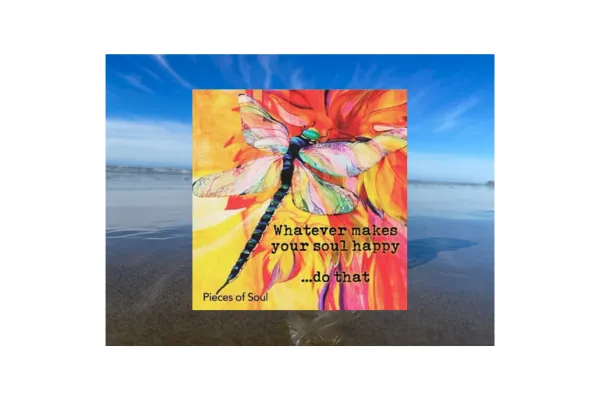Wherever You Are, Whenever You Need It—
Notarization, Made Simple & Secure
Living REal Aloha blog
A space for insight, growth, and connection—because living with intention, care, and aloha extends to every part of life.

How I Stopped Apologizing for Everything — And Why You Should Too
For the last couple of years, I’ve been working on something that seems simple but can be surprisingly hard: not saying "sorry" unless I actually mean it. It’s been a real shift for me, and I’ve even started pointing it out to others when I notice them doing the same thing. The truth is, we tend to apologize way too much, and a lot of the time, it’s a reflex rather than something we really mean. Constant apologizing can even be a sign that we’re struggling with self-worth.
You’ve probably seen it, or maybe you do it yourself: apologizing all the time, for things that don’t really need an apology. On one hand, saying sorry is part of being polite, and that’s totally fine. But if you catch yourself saying sorry for everything, it’s time to take a closer look at why you’re doing it. Think about it: when you apologize, you’re taking the blame for something going wrong. Whether you’re navigating a crowded grocery store aisle or just asking for something you want, there are times when "sorry" isn’t necessary — and "excuse me" might be a better fit.
Here’s the tricky part: constantly apologizing can send a message that you believe others have more of a right to be here than you do. Sure, sometimes "sorry" is just a quick way to ease tension, but if it’s happening all the time, it might be worth digging a little deeper. It could be a habit that’s formed over time, and breaking it starts with a little awareness.
Steps to Break the Habit
Notice When You Do It: The first step is just paying attention. Don’t stress about it; just notice when you say sorry throughout your day. You might be surprised at how often it pops out without you even thinking about it.
Check in With Your Feelings: After a few days of paying attention, try to catch what you’re feeling right before you apologize. Are you feeling anxious? Embarrassed? These emotions might be fueling your need to say sorry, and noticing them can help you break the cycle.
Pause Before You Apologize: Once you’re aware of your feelings, try to pause before the word "sorry" slips out. Sit with the feeling for a moment and ask yourself if an apology is really needed. This might be something tied to your past — something you’ve been carrying for a while without realizing it.
As you start to become more aware of when and why you say sorry, you’ll begin to feel more confident. You’ll realize that you don’t always need to apologize for simply existing or taking up space. It’s not about cutting “sorry” out of your vocabulary entirely, but about using it only when it’s truly necessary — and not as a default reaction.
STRAIGHT FROM OUR HAPPY CUSTOMERS
This is an incredible testimonial that specifically overcomes a common objection, and this is the main point of the testimonial.
Mauris ac vestibulum nibh, quis euismod velit. Mauris sodales tincidunt ex vitae viverra. Nunc neque eros, convallis. Mauris sodales tincidunt ex.
Jane Awesome, Acme, Co.

STRAIGHT FROM OUR HAPPY CUSTOMERS
This is an incredible testimonial that specifically overcomes a common objection, and this is the main point of the testimonial.
Mauris ac vestibulum nibh, quis euismod velit. Mauris sodales tincidunt ex vitae viverra. Nunc neque eros, convallis. Mauris sodales tincidunt ex.
Jane Awesome, Acme, Co.

STRAIGHT FROM OUR HAPPY CUSTOMERS
I wasn’t sure about online notarization at first, but Heidi made the process so easy. I felt completely comfortable and will definitely use her again!
Experience the same ease and confidence—schedule your notarization today
- Remote Notary User

EXPLORE
ON SOCIAL

EXPLORE
ON SOCIAL
Facebook
Instagram
Pinterest
Youtube
© LivingRealAloha.com - All Rights Reserved - Terms & Conditions - Original Site by Hayden Digital Group/FGFunnels; 2025 Update by Living Real Aloha

